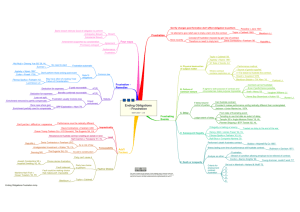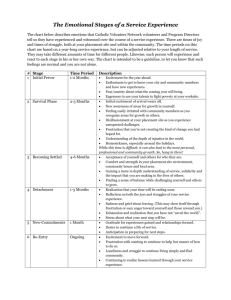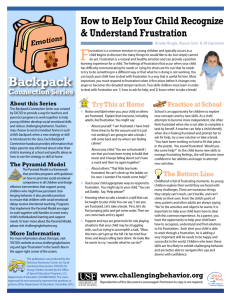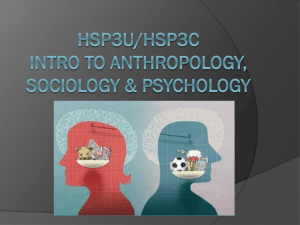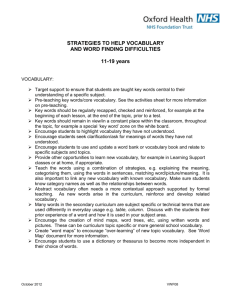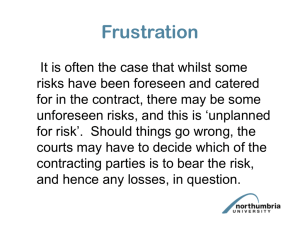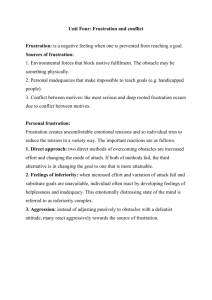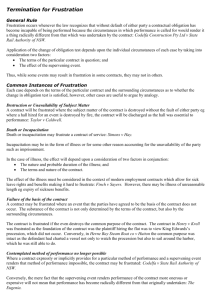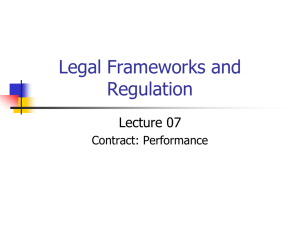Educational Difficulties - Tourette Syndrome Association
advertisement
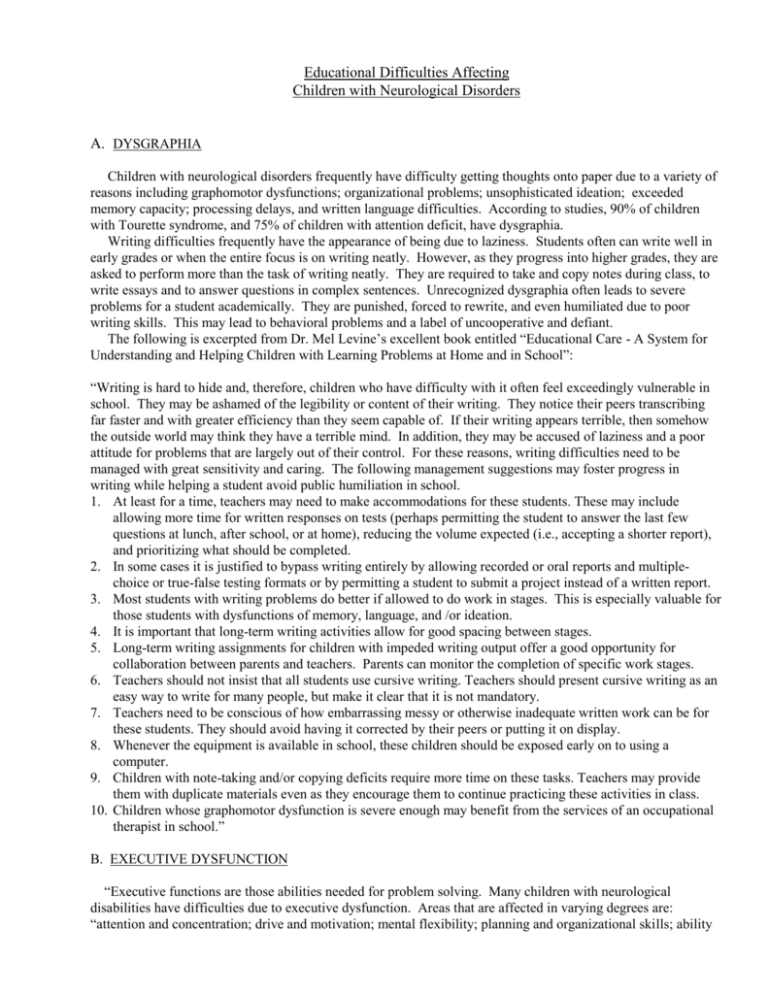
Educational Difficulties Affecting Children with Neurological Disorders A. DYSGRAPHIA Children with neurological disorders frequently have difficulty getting thoughts onto paper due to a variety of reasons including graphomotor dysfunctions; organizational problems; unsophisticated ideation; exceeded memory capacity; processing delays, and written language difficulties. According to studies, 90% of children with Tourette syndrome, and 75% of children with attention deficit, have dysgraphia. Writing difficulties frequently have the appearance of being due to laziness. Students often can write well in early grades or when the entire focus is on writing neatly. However, as they progress into higher grades, they are asked to perform more than the task of writing neatly. They are required to take and copy notes during class, to write essays and to answer questions in complex sentences. Unrecognized dysgraphia often leads to severe problems for a student academically. They are punished, forced to rewrite, and even humiliated due to poor writing skills. This may lead to behavioral problems and a label of uncooperative and defiant. The following is excerpted from Dr. Mel Levine’s excellent book entitled “Educational Care - A System for Understanding and Helping Children with Learning Problems at Home and in School”: “Writing is hard to hide and, therefore, children who have difficulty with it often feel exceedingly vulnerable in school. They may be ashamed of the legibility or content of their writing. They notice their peers transcribing far faster and with greater efficiency than they seem capable of. If their writing appears terrible, then somehow the outside world may think they have a terrible mind. In addition, they may be accused of laziness and a poor attitude for problems that are largely out of their control. For these reasons, writing difficulties need to be managed with great sensitivity and caring. The following management suggestions may foster progress in writing while helping a student avoid public humiliation in school. 1. At least for a time, teachers may need to make accommodations for these students. These may include allowing more time for written responses on tests (perhaps permitting the student to answer the last few questions at lunch, after school, or at home), reducing the volume expected (i.e., accepting a shorter report), and prioritizing what should be completed. 2. In some cases it is justified to bypass writing entirely by allowing recorded or oral reports and multiplechoice or true-false testing formats or by permitting a student to submit a project instead of a written report. 3. Most students with writing problems do better if allowed to do work in stages. This is especially valuable for those students with dysfunctions of memory, language, and /or ideation. 4. It is important that long-term writing activities allow for good spacing between stages. 5. Long-term writing assignments for children with impeded writing output offer a good opportunity for collaboration between parents and teachers. Parents can monitor the completion of specific work stages. 6. Teachers should not insist that all students use cursive writing. Teachers should present cursive writing as an easy way to write for many people, but make it clear that it is not mandatory. 7. Teachers need to be conscious of how embarrassing messy or otherwise inadequate written work can be for these students. They should avoid having it corrected by their peers or putting it on display. 8. Whenever the equipment is available in school, these children should be exposed early on to using a computer. 9. Children with note-taking and/or copying deficits require more time on these tasks. Teachers may provide them with duplicate materials even as they encourage them to continue practicing these activities in class. 10. Children whose graphomotor dysfunction is severe enough may benefit from the services of an occupational therapist in school.” B. EXECUTIVE DYSFUNCTION “Executive functions are those abilities needed for problem solving. Many children with neurological disabilities have difficulties due to executive dysfunction. Areas that are affected in varying degrees are: “attention and concentration; drive and motivation; mental flexibility; planning and organizational skills; ability to recognize and correct mistakes, ability to respond to feedback cues, and the ability to understand the consequences of behavior.” (Excerpt from “Teaching the Tiger” Marilyn Dornbush, PH.D.; Sheryl Pruitt, M.Ed.) “…executive functions include cognitive skills such as shifting cognitive set, organization and planning (including anticipation of problems, formulation of goals in response to problems, and selection, monitoring, and adjustment of strategy in response to problems); working memory, and separation of affect.” Ross W. Greene, Ph.D. C. INFLEXIBILITY DIFFICULTIES The chemical imbalances involved in neurological disabilities might also affect a child in the area of flexibility and adaptability. As outlined by Ross W. Greene, Ph.D. (Massachusetts General Hospital/Harvard Medical School) in his workshop entitled “Explosive/Noncompliant Children”, characteristics may include: 1. Remarkably limited capacity for flexibility, adaptability and coherence in the midst of a frustrating situation: child often seems unable to “shift gears” in response to a change in plans and becomes quickly overwhelmed when a situation calls for flexibility and adaptability. As the child becomes frustrated, his or her ability to “think through” ways of resolving frustrating situations in a way that is mutually satisfactory to all concerned becomes greatly diminished; the child is unable to access prior learning about how to handle frustration, unable to recall the consequences of previous inflexible episodes, has trouble thinking rationally, may not be responsive to reasoned attempts to restore coherency, and may deteriorate even further in response to limitsetting. 2. Extremely low “frustration threshold”: child becomes frustrated far more easily and by far more seemingly trivial events than same-aged peers. Because of this, the child experiences the world as one filled with frustration (and filled with uncomprehending adults). 3. Extremely low “tolerance for frustration”: child is not only more easily frustrated but also experiences the emotions associated with frustration more intensely and tolerates these emotions far less adaptively than same-aged peers. In response to frustration, these children quickly become extremely agitated, disorganized, verbally and physically aggressive, or destructive. 4. Tendency to think in a concrete, rigid, “black and white” manner: child does not recognize the “gray” in many situations; may apply oversimplified, rigid, inflexible rules to complex situations; and may impulsively revert to such rules even when they are obviously inappropriate. 5. Inflexibility and poor response to frustration persist despite a high level of intrinsic and/or extrinsic motivation: inflexible-explosive children continue to exhibit frequent, intense, and lengthy meltdowns even in the face of salient, potent and consistent consequences. 6. Inflexible episodes may have an “out of the blue” quality: child may seem to be in a ‘good mood’ and then fall apart unexpectedly in the face of frustrating circumstances, no matter how trivial. 7. Child may have one or several ‘issues’ about which s/he is especially inflexible; for example, the way clothing ‘looks’ or ‘feels,’ the way food ‘tastes’ or ‘smells’, the order or manner in which things must be done, and so forth. 8. The child’s inflexibility and difficulty responding to frustration in an adaptive manner may be “fueled” by behaviors and symptoms (moodiness/irritability, hyperactivity/impulsivity, anxiety, obsessionality, social impairment) commonly associated with other disorders. 9. While other children are apt to become more irritable when tired or hungry, inflexible-explosive children completely ‘fall apart’ when tired, hungry or thirsty. Dr. Greene notes that some children with neurological disabilities are “delayed in the process of developing the skills that are critical to being flexible and tolerating frustration and/or has significant difficulty applying these skills when they are most needed. The child isn’t choosing to be explosive and noncompliant, any more than a child would choose to have a reading disability.” K. Giordano, Education Specialist Tourette Syndrome Association, Inc.
